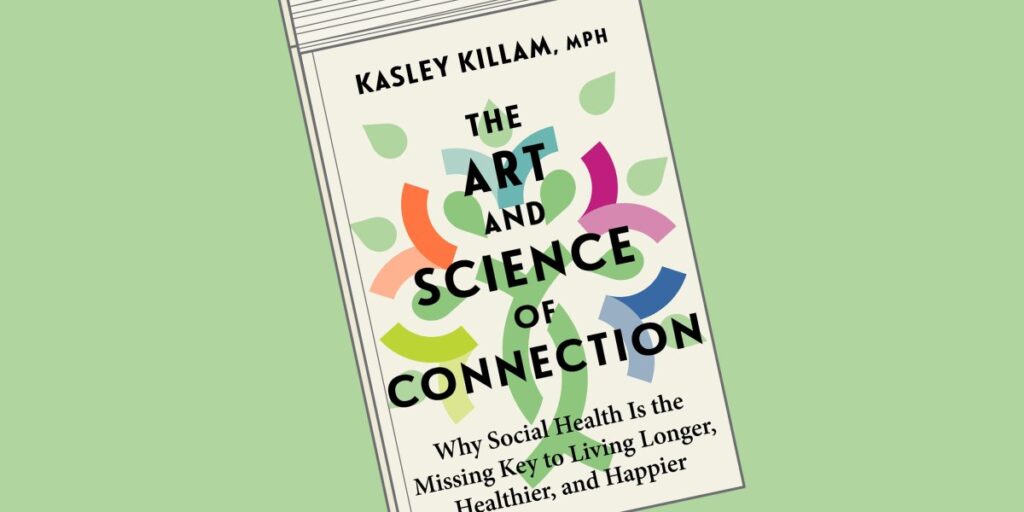Now, if you need help strengthening your social skills, you'll have a wider range of options to choose from.
Similarly, as our shared understanding of health expanded from physical to mental, mental health companies flooded the market, and the idea of caring for the mind as well as the body became mainstream. Today, the mental health industry is booming, worth more than $380 billion worldwide in 2020 and expected to exceed $530 billion by 2030.
As we increasingly recognize that health is not just physical and mental, but also social, we will likely see similar trends in social health, a key aspect of overall well-being that stems from relationships with family, friends, colleagues and community.
The first sign of this emerging trend is the rise of organizations stepping up to address loneliness. As someone who built an app to help people develop deeper relationships in 2013 and has more recently advised technology leaders, I've tracked hundreds of startups with a particular focus on tech solutions. These include digital platforms that help isolated seniors find community and apps that make employees feel less lonely while working remotely. Outside of tech, thousands of initiatives to address loneliness have been launched around the world in governments, education and other sectors.
There will be many products and services emerging to help people proactively cultivate their social wellness and prevent loneliness in the first place. Let's take a look at some examples of what will be available in the next few years.
Gym for social fitness
In North America, there's no shortage of places you can go if you want to get in shape, from bustling gyms to tranquil yoga studios. But where are the dedicated spaces for flexing your social muscles? Community centers and social clubs come to mind, but they don't typically train you how to get socially fit in the same way that you get your body in shape in an exercise class.
Over the next five years, we expect to see a rise in purpose-built social fitness gyms, which offer classes and other opportunities for adults to make new friends, learn how to connect more meaningfully, and generally practice relationship skills. Like gyms for physical fitness, gyms for social fitness charge a monthly membership fee.
One example of a brick-and-mortar approach already doing this is Peoplehood: In 2023, the SoulCycle founders opened a “modern community center” in New York City where people can try out “working out for relationships.” Peoplehood's signature hour-long sessions focus on guiding people to practice sharing openly and listening attentively.
Personal trainer builds relationships
You can hire a personal trainer if you want to get in better shape, or see a therapist to improve your mental health, but who can you turn to for personalized support with your social wellbeing?
Kat Vellos is one of the world's first connection coaches. Previously a user experience researcher and technical designer making software user-friendly, she is now a certified friendship coach and facilitator. For example, Kat leads the Platonic Action Lab, a two-month bootcamp for people who want to foster meaningful friendships in their local community. Members meet weekly to participate in Kat's virtual workshops and support each other as they take intentional, proactive steps to be socially healthy.
Similar to social fitness gyms, we predict we will see a proliferation of connection coaches over the next five years.
In particular, more and more companies are realizing that social health has a positive impact on their bottom line and are offering social health classes and programs in the workplace as an employee benefit. People who have a best friend at work are seven times more likely to be engaged in their jobs and produce higher quality work. Meanwhile, each lonely employee costs employers an average of more than $4,000 per year in missed work days and lost productivity.
Prescriptions for communities
Soon, you too will be able to seek help from your doctor.
Social prescription is when doctors and other health professionals refer patients to resources that meet basic needs that fall outside the scope of regular medical care, such as housing, food, and, increasingly, connection. Volunteering, community gardening, and ballroom dancing are some examples of social activities that might be “prescribed.”
In the UK, 76% of GPs report seeing multiple patients each day because of loneliness, making social prescription a “key element” of the National Health Strategy. People living in the US, Canada, and countries around the world will also increasingly have access to this type of support: studies have shown that patients who receive social prescriptions feel less lonely and more connected, resulting in reduced use of primary care services.
Similar to social fitness gyms and connection coaches, prepare for your doctor to ask you about your social health at your upcoming appointments. I predict this will become the norm within the next decade.
Following the rise of the mental health industry, social health is the next frontier for entrepreneurs and innovators.
Adapted from The Art and Science of Connection by Kasley Killam. Reprinted with permission from HarperOne, an imprint of HarperCollins Publishers. Copyright 2024.
Subscribe to Well Adjusted, a newsletter filled with simple strategies to work smarter and live better, from the Fortune Well team. Sign up now for free.
Source link



